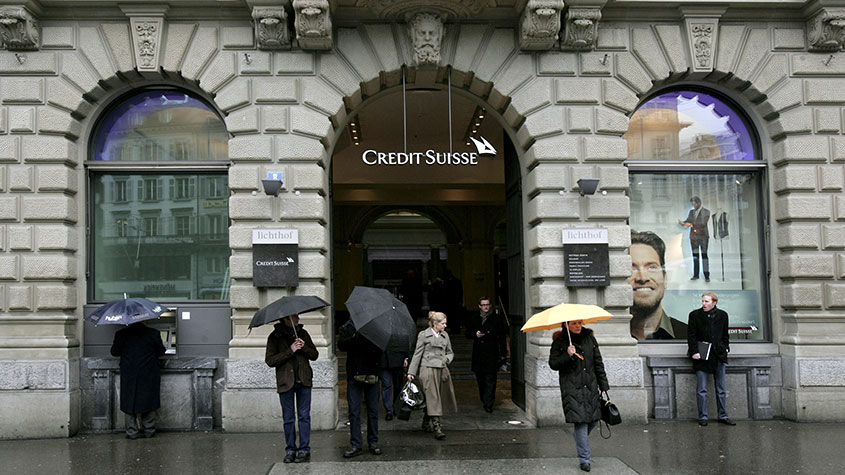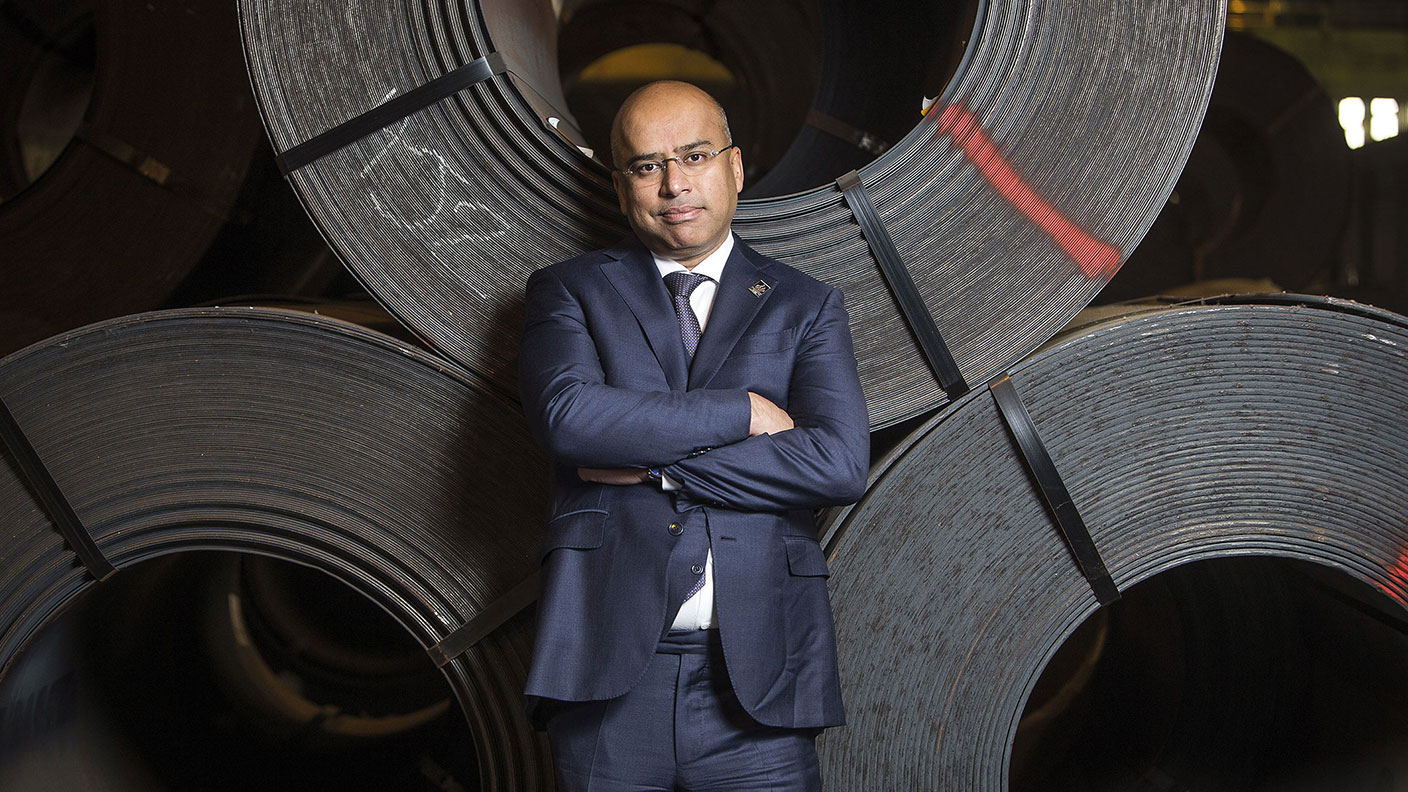
Get the latest financial news, insights and expert analysis from our award-winning MoneyWeek team, to help you understand what really matters when it comes to your finances.
You are now subscribed
Your newsletter sign-up was successful
Want to add more newsletters?
For much of the past two decades, banks have been poor long-term investments as shown by the shrinking weight of the sector in the FTSE 100. Two decades ago banks accounted for four-fifths of the 27% weighting of financials in the index. Today financials account for just 18% of the FTSE 100 in total.
Stringent regulation, tax raids by opportunistic governments and a need to evolve rapidly in the face of technology are just a few of the headwinds that have held back the sector over the past 20 years, but after this extended period of underperformance, positive signs are starting to emerge.
The collapse of Silicon Valley Bank, Credit Suisse and others earlier this year did not set off the widely expected chain reaction across the sector. Instead, banks have remained dull performers in Europe and the US while performing surprisingly well in the UK, Japan and emerging markets (ex-China) suggesting they may be in the early stages of a significant upswing in their fortunes.
Try 6 free issues of MoneyWeek today
Get unparalleled financial insight, analysis and expert opinion you can profit from.

Sign up to Money Morning
Don't miss the latest investment and personal finances news, market analysis, plus money-saving tips with our free twice-daily newsletter
Don't miss the latest investment and personal finances news, market analysis, plus money-saving tips with our free twice-daily newsletter
A sector upswing
The core business of banks is to borrow short-term and lend long-term. When short-term interest rates are higher than long-term the margin between what banks pay to depositors and what they can charge borrowers for long-term loans is squeezed. This may be about to change.
With US inflation down to 3.7% interest rates in the current range of 5.25-5.50% are surely set to fall before long. Yields on 10-year Treasuries stand at 4.3% but have much less, if any, downside. They should be above short-term rates (yields on two-year Treasuries currently stand at 5%) sometime next year, as is also likely in the UK and Europe.
This would be very good news for Polar Capital’s Global Financial Trust (PCFT) which currently trades at a 11% discount to net asset value. Banks comprise 46% of its portfolio, financial services (such as Visa and Mastercard) for 28% and insurance for 17%. 10% of the fund is allocated towards fixed income and the portfolio is globally diversified.
The Trust won approval to extend its life in April 2020 and opportunistically raised an additional £122m of equity a year later so it now has net assets of £500m. Since the fundraise, the share price has fallen while the net asset value and the benchmark sector index have stagnated but a dividend yield of 3.8% has provided consolation.
Insurance overlap
Perhaps unfortunately, PCFT has little overlap with Polar’s £2bn Global Insurance fund, whose performance has been strong, returning 55% in the last five years compared with the 50% return from the sector index and 10% over the last year. As Dominic Evans, its co-manager, points out “insurance is not a discretionary purchase so is resilient in difficult economic times while the rise in interest rates means that the income from cash balances, arising because premiums come in long before claims are paid out, has increased significantly.”
Rate increases have “accelerated,” especially in the property sector, but so has the cost of the reinsurance which insurers have to buy. Evans expects “book valuation growth for the sector to be in excess of 16% for the foreseeable future which is not reflected in a ratio of price to book value of 1.7.” This means that “there is compelling value in the sector” which will do PCFT no harm either.
As PCFT co-manager Nick Brind says, “financials have significantly lagged the market this year despite operating performance remaining resilient. Valuations for much of the sector remain at very low levels.” In a sector where both individual stock risk and country risk are high, PCFT’s diverse global exposure provides protection while offering attractive exposure to the next cyclical upturn in banks.
Get the latest financial news, insights and expert analysis from our award-winning MoneyWeek team, to help you understand what really matters when it comes to your finances.

Max has an Economics degree from the University of Cambridge and is a chartered accountant. He worked at Investec Asset Management for 12 years, managing multi-asset funds investing in internally and externally managed funds, including investment trusts. This included a fund of investment trusts which grew to £120m+. Max has managed ten investment trusts (winning many awards) and sat on the boards of three trusts – two directorships are still active.
After 39 years in financial services, including 30 as a professional fund manager, Max took semi-retirement in 2017. Max has been a MoneyWeek columnist since 2016 writing about investment funds and more generally on markets online, plus occasional opinion pieces. He also writes for the Investment Trust Handbook each year and has contributed to The Daily Telegraph and other publications. See here for details of current investments held by Max.
-
 Has the market misjudged Relx?
Has the market misjudged Relx?Relx shares fell on fears that AI was about to eat its lunch, but the firm remains well placed to thrive
-
 Dario Amodei: The AI boss in a showdown with Trump
Dario Amodei: The AI boss in a showdown with TrumpAnthropic’s CEO Dario Amodei was on an extraordinary upward trajectory when he found himself on the wrong side of the American president. He is about to be severely tested.
-
 Royal Mint: Gold boom likely as investors turn to physical gold
Royal Mint: Gold boom likely as investors turn to physical goldNews Recent banking scares have encouraged investors to turn to gold to protect their portfolios from volatility. Should you be looking to buy more gold?
-
 What’s happened to Credit Suisse stock?
What’s happened to Credit Suisse stock?News Credit Suisse stock has slumped on rumours that the bank is in trouble. Is there any truth in this speculation?
-
 What's behind the collapse of Greensill Capital, and why does it matter?
What's behind the collapse of Greensill Capital, and why does it matter?Briefings A financial company involved in opaque products that repackaged loans has gone into administration. Is there a bigger systemic risk here?
-
Gold brushed aside in the dash for cash
Features Gold recently slumped to a five-month low of under $1,600 an ounce as panicky investors ditched assets for cash.
